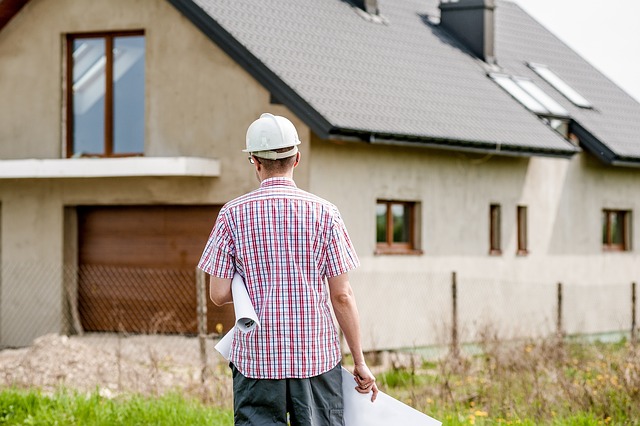Effective home repair and maintenance are critical for ensuring the safe and efficient operation of household appliances. This involves adhering to technical specifications, such as voltage and power requirements during installation to prevent electric hazards, and following manufacturer guidelines to comply with local codes. Regular checks for wear and damage, especially after heavy use or seasonal changes, can help catch issues early. Safety measures like proper grounding and leak-free gas connections are non-negotiable to prevent accidents. DIY troubleshooting is beneficial for addressing common issues like a refrigerator's cooling problems or a washing machine that won't drain, with solutions ranging from cleaning condenser coils to unclogging filters. However, when dealing with complex malfunctions, especially those involving electrical risks like sparks or frequent circuit breaker trips, or gas leaks, professional intervention is necessary due to the potential dangers and to maintain appliance longevity. Professionals adhere to safety standards and can handle even the most complex issues, ensuring the integrity of your home investment and restoring functionality with precision and efficiency.
Navigating home repair and maintenance often involves ensuring your appliances function safely and efficiently. This article demystifies appliance installation and repair, guiding you through essential safety protocols and common troubleshooting steps for home appliances. Whether you’re a homeowner tackling a DIY project or considering when professional expertise is necessary, this comprehensive guide will empower you with the knowledge to address appliance issues effectively, upholding your home’s operational integrity and promoting long-term reliability.
- Understanding the Basics of Appliance Installation and Safety Protocols
- Troubleshooting Common Issues in Home Appliances and DIY Solutions
- When to Call a Professional: Expert Repair Services for Complex Appliance Problems
Understanding the Basics of Appliance Installation and Safety Protocols

When tackling home repair and maintenance, appliance installation and repair stand out as critical tasks to ensure your household operates efficiently and safely. Proper understanding and adherence to basic installation protocols are paramount for the longevity and functionality of appliances within a residential setting. Homeowners should familiarize themselves with the technical specifications of their appliances, including voltage and power requirements, to avoid potential electric hazards. For instance, connecting a high-power appliance like a refrigerator or dryer to an inadequate circuit can lead to overloading and pose a fire risk. It is also essential to follow manufacturer guidelines for installation to ensure that all connections are secure and that water supply lines, if applicable, meet local plumbing codes.
In addition to the technical aspects of appliance installation, safety protocols must be strictly observed. This includes ensuring that the appliance is grounded properly to protect against electrical surges, as well as verifying that gas-powered units have leak-free connections to prevent dangerous gas accumulations. Regular maintenance checks should be scheduled to inspect for any signs of wear or damage, especially after significant use or during seasonal transitions. Additionally, keeping manuals handy and understanding warranty coverage can facilitate prompt repairs and prevent avoidable complications. By staying informed about home repair and maintenance best practices, homeowners can maintain a safe and functional living environment.
Troubleshooting Common Issues in Home Appliances and DIY Solutions

When encountering common issues in home appliances, a comprehensive understanding of troubleshooting and DIY solutions is invaluable for home repair and maintenance. Many problems, such as a refrigerator not cooling properly or a washing machine that won’t drain, can often be resolved without the need for professional assistance. For instance, if your fridge is warm rather than cold, first check the condenser coils at the back or bottom of the appliance to ensure they are clean and functioning correctly. Regularly cleaning these coils can prevent overheating and maintain optimal cooling performance. Similarly, a washing machine that fails to drain might have a clogged filter or a malfunctioning pump. Homeowners can clear out the filter and inspect the hoses and pumps for blockages or wear, which are straightforward tasks that can save you from a costly service call. It’s important to approach each issue methodically, referring to the user manual for specific troubleshooting steps tailored to your appliance model. Basic tools like a multimeter can help diagnose electrical issues, while a screwdriver and pliers are essential for most mechanical adjustments. With a proactive approach to home repair and maintenance, many appliance malfunctions can be effectively managed, ensuring your home appliances operate efficiently and safely.
When to Call a Professional: Expert Repair Services for Complex Appliance Problems

When encountering intricate issues with household appliances, distinguishing when to tackle a repair yourself versus when to call in a professional is crucial for the longevity and safety of your home. For instance, if an appliance is not functioning at all or displays signs of electrical problems such as sparking or consistent tripping of circuit breakers, it’s prudent to halt DIY attempts. Complex malfunctions like these often require specialized knowledge and tools that professional repair services provide. Additionally, when dealing with gas-powered appliances where a leak or improper installation could pose significant health risks, expert intervention is essential. Professional repair teams are trained to handle such scenarios, ensuring that all safety protocols are followed and that your home remains a secure environment. In these situations, opting for home repair and maintenance services not only ensures the safe operation of your appliances but also protects your investment in your household. These experts bring with them a wealth of experience and expertise, equipped to diagnose and resolve even the most perplexing issues efficiently and effectively, safeguarding your home’s functionality and comfort.
When it comes to maintaining the functionality and safety of home appliances, a blend of DIY troubleshooting and professional expertise is key. This article has provided valuable insights into the basics of appliance installation, addressing common issues, and understanding when expert repair services are necessary. By equipping yourself with knowledge on home repair and maintenance, you can confidently tackle routine problems while recognizing the moments when professional intervention is crucial for complex appliance malfunctions. With these skills, your household’s appliances will continue to operate efficiently and safely, ensuring longevity and performance.
